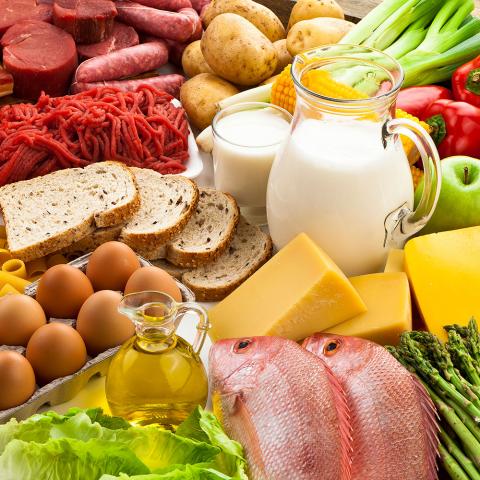
Changing the type of food intake may reduce the likelihood of stone formation but this seems less important than fluid intake. There is relatively little evidence that dietary modification works well, but some changes are worth making. People will not persist with dietary modification if they find this too difficult or restrictive. It is therefore advised to aim for a well balanced healthy diet without become too extreme about restrictions.
Increasing Calcium Intake
Even though the majority of kidney stones are composed of Calcium, there is good evidence that a diet rich in calcium is associated with a lower chance of making stones in the future. Interestingly, calcium supplements (as opposed to dietary calcium) may slightly increase the risk od renal stone formation. If calcium supplements are necessary, they should be taken with a meal as this may reduce the likelihood of stone formation
Dietary Calcium is found in:
- Milk and milk products – milk, yoghurt, cheese and buttermilk.
- Leafy green vegetables – broccoli, collards (cabbage family), bok choy, Chinese cabbage and spinach.
- Soy and tofu – tofu (depending on type) or tempeh and calcium fortified soy drinks.
Reducing salt intake
A high salt diet is associated with an increased risk of stone formation. It is important to note that salt is present as an additive in many processed foods.
High salt intake causes increased concentration of Calcium in the urine which may cause stone formation.
Low Protein Diet
A reduction in animal protein (meat, fish, chicken and eggs) may be beneficial especially in those who produce Uric Acid or Calcium stones.
Low Oxalate Diet
This is controversial and the author would not recommend this. Many stones are composed of Calcium Oxalate. Oxalates are present in many types of healthy food groups and avoiding oxalate can have negative consequences. There is some evidence that reducing dietary oxalate can reduce the concentration of oxalate in urine. However, there is no conclusive evidence that this results in less stone formation.
The following foods contain oxalate:
- Tea.
- Chocolate.
- Nuts.
- Cocoa.
- Strawberries.
- Rhubarb.
- Celery, Spinach and Beetroot.
- Parsley.
High Fruit and Vegetable Diet
Apart from the general health benefits of fruits and vegetables, there is evidence that this increases the concentration of Citrate in urine and this helps to prevent the formation of renal calculi.









